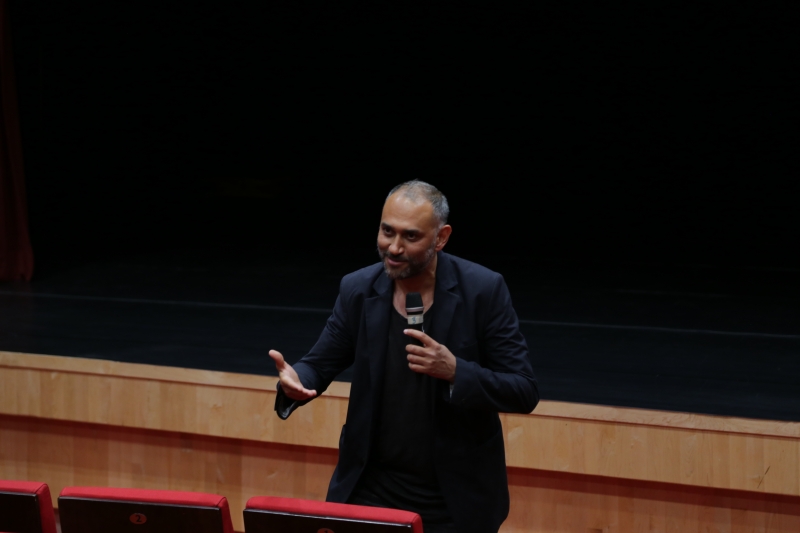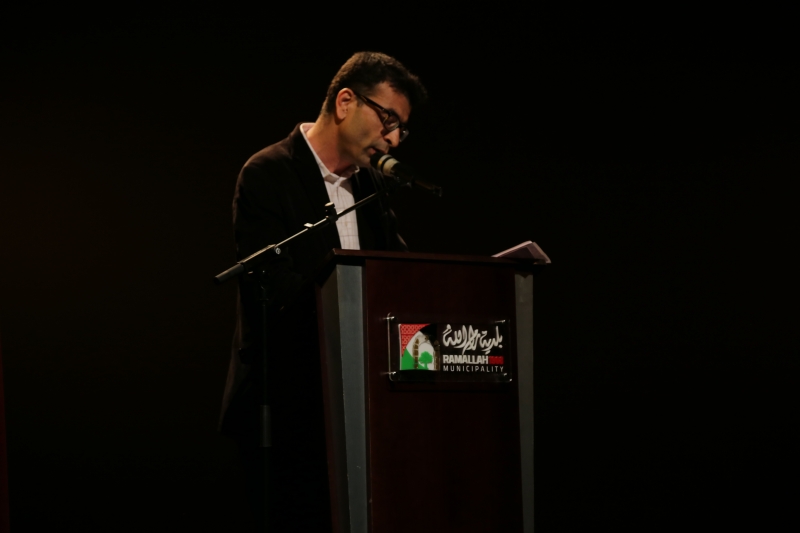
In 70 minutes, Recollection (2015) took the audience on a journey through time to the Jaffa city of the 1960s and 1980s. Recollection is a film by Palestinian director Kamal al-Ja’fari.
On Saturday, 12 June 2017, the A. M. Qattan Foundation (AMQF) and Ramallah Municipality organised the debut of Recollection at the Municipal Theatre during the opening ceremony of the 5th edition of /s:in/ Festival for Video Art and Performance. On the next day, 13 June 2017, the film was screened at the Yabous Cultural Centre in Jerusalem.
Al-Ja’fari spent several years searching items of the Israeli film archive. The search included more than 60 movies filmed in the Jaffa city. This time span covered work on the film construction, which documents a significant stage of the city’s history, montage, audio adjustments, and subsequent techniques.

In the film, Al-Ja’fari used all visual materials from the Israeli movies, which were filmed in the Jaffa city in the 1960s and 1980s. Al-Ja’fari employed certain techniques, which allowed him to erase all Israeli actors and construct a film that highlighted the lives of Palestinians and the places in the background of movies while they were filmed in the city.
Al-Ja’fari, 45 years old, was born in the Ramla city and lived his early years moving between Ramla and Jaffa, where his grandmother resided. Later, Al-Ja’fari moved to Jerusalem and then to Germany, where he joined the Academy of Media Arts of Cologne. He also earned a one-year fellowship at Harvard University. Before he returned to Germany, Al-Ja’fari had worked in New York city for a while. He has taken up permanent residence in Berlin. He has produced several films and won many global awards.
About the idea of the film, Al-Ja’fari says: “The Israelis have not only uprooted us from reality, but also from the picture and from the cinema. That was the origin of the idea. I wished I could recollect the place and restore the people who appeared in the background of the movies and put them at the forefront of the picture.”
Regarding details of his work, particularly the film production, Al-Ja’fari elaborates: “Among the things I have discovered are places , of course, as well as many stories which I was not aware of. For example, of the people who appeared in the background of movies, I recognised my maternal uncle who happened to pass by while a movie was being filmed. I also recognised neighbours who lived near to my grandfather’s house. The film allowed me to recognise them. It gave me an opportunity to construct a memory of my own as well as another collective memory of us all.”

In his introduction to the film, Mahmoud Abu Hashhash, Director of the AMQF Culture and Arts Programme, said: “The film is a breakthrough in dealing with film archive. As a whole, Kamal’s film is an archival material. It is not only a sign, reference or witness to the past. The director combines all that past in a conclusive texts which he presents on the screen, saving the city and its inhabitants from denial, oblivion or eternal erasure or, at least, from the state of schism in the archive, history and narrative."
Mirna Bamyah, a viewer, commented: “The film invites us to take a short journey down the memory lane… My family come from the Al-Manshiya neighbourhood in Jaffa. They were displaced and lived in Jerusalem. I could not live there at any time. However, through the film, I managed to recognise the Al-Manshiya neighbourhood, which no longer exists… Of particular importance is this approximation of the place and memory. The tactic and the sounds he employed are both interesting and new.”
Sally Abu Bakr, Director of the Culture and Social Affairs Unit at the Ramallah Municipality, stated: “Joint organisation of the /si:n/ Festival for Video Art and Performance as well as other culture and art events in Ramallah is important. It allows us to organise performances in new places and target new audiences.” According to Abu Bakr, the film is an experimental work and a new genre, which the audience here is not familiar with. The content and idea of the film are significant. “It is a documentary work, which chronicles part of the Palestinian memory,” Abu Bakr concluded.
The 5th edition of /si:n/ Festival for Video Art and Performance ran for four days, from 12 to 15 June 2017. The festival was organised in partnership between cultural and artistic institutions in the central Palestinian cities of Jerusalem, Ramallah, Bethlehem and Gaza. A selection of video art installations, performances and film screenings by noted local and international artists were exhibited in these cities.
